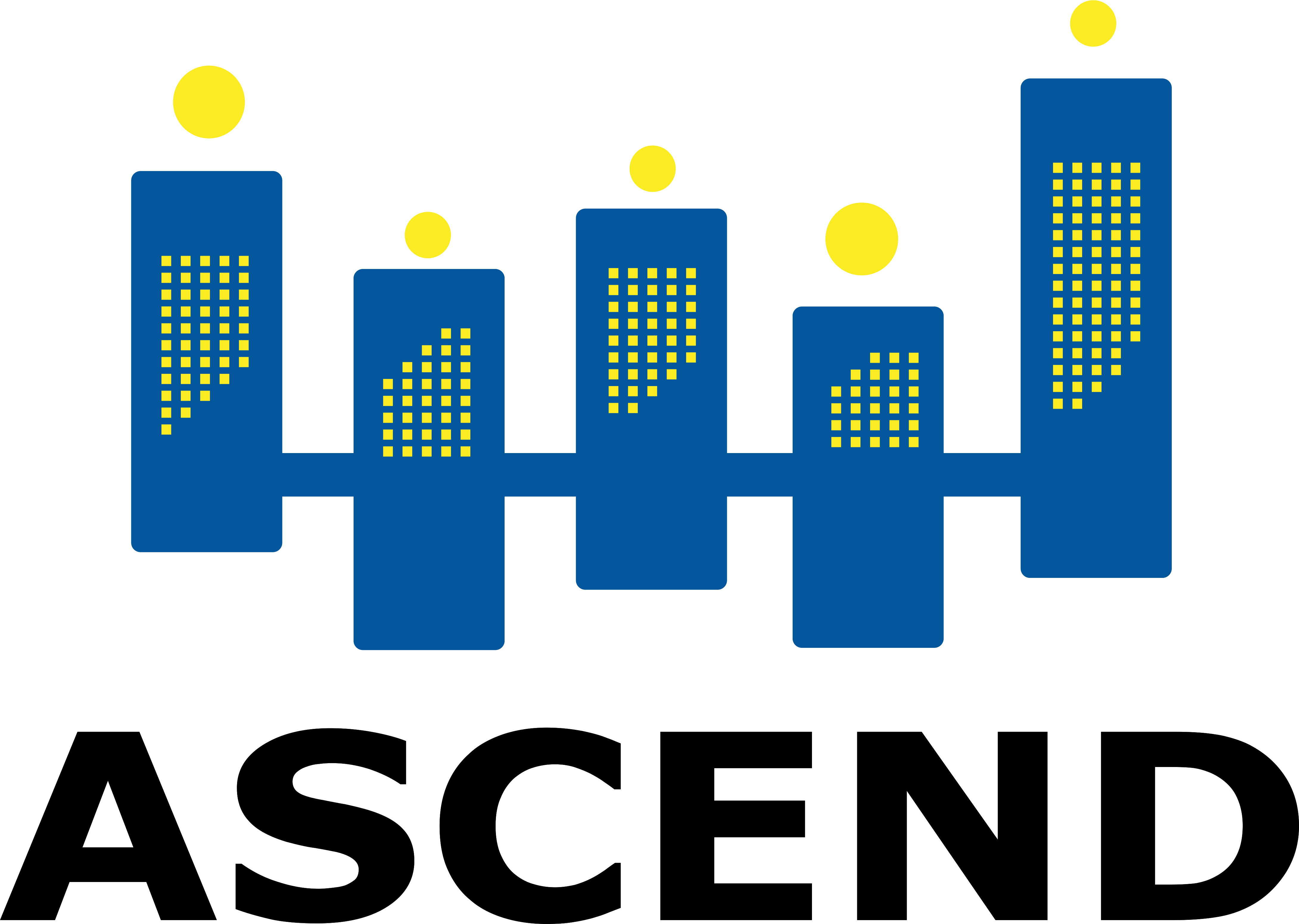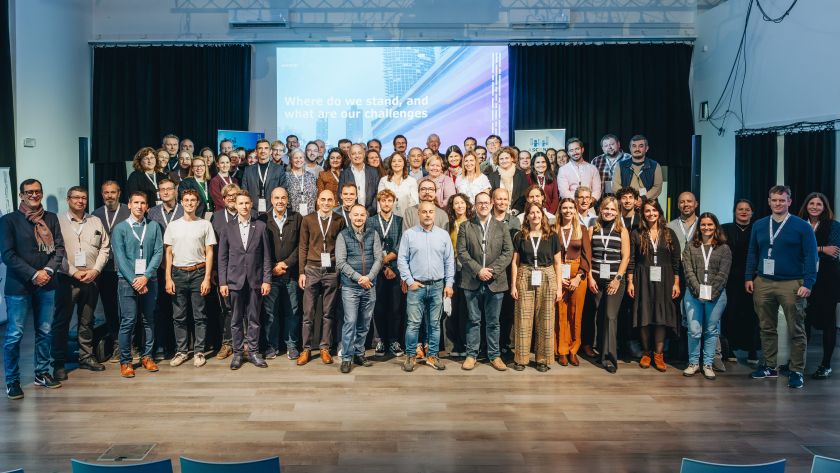ASCEND partners and city representatives gathered in Budapest, Hungary, on 6-9 October for the project’s General Assembly, a three day event filled with discussions, learning, and forward-looking collaboration around the shared mission of accelerating Positive Clean Energy Districts as part of Europe’s transition toward climate-neutral cities, followed by exemplary site visits of PCED solutions in Budapest.
Hosted by the Municipality of Budapest, the General Assembly brought together representatives from ASCEND’s lighthouse and multiplier cities, technical partners, and coordination team. The atmosphere was dynamic and solution driven, a strong reminder that ASCEND’s strength lies in its mix of innovation and collaboration.
ASCEND: Turning Vision into Implementation
The ASCEND project is moving from design to implementation and has already implemented 18 solutions in a challenging context of increasing real estate prices, reduced municipal budgets and the on-going energy crisis. This continued effort is only possible thanks to the cities and partners who work day in and day out to make sure that each of the ASCEND cities is making progress towards implementing innovative solutions. To help make this work possible, ASCEND cities show incredible commitment to designing scalable and replicable business models for their PCEDs. On the regular, they participated in Business Model Workshops using the PCED Business Model Assembler - an innovative online and physical card game. These sessions have helped cities explore innovative pathways for governance, participation, and investment that balance climate ambition with affordability. Through the Knowledge Platform, ASCEND continues to develop new digital and analytical tools, including the State of the Art Solution Repository and the Multi-Criteria Decision Tool which helps cities in selecting, evaluating, and scaling up their Positive Clean Energy Districts.
Lighthouse Cities: From Strategy to Real-World Change
The Lighthouse Cities — Lyon and Munich — have together commissioned 99,000 m² of new and refurbished buildings, deployed 930 kWp of PV systems, and developed two digital twins that visualize and optimize district energy and environmental performance.
In Lyon, work in the Confluence district is transforming a former industrial zone into a vibrant, low-carbon neighborhood, with an energy community that includes five buildings. Large-scale retrofitting and energy-efficient construction are complemented by renewable integration and digital management systems that enhance performance at the district scale. Citizen co-creation remains central to Lyon’s approach, with participatory workshops shaping mobility, energy-sharing schemes, and public-private partnerships that ensure long-term sustainability and inclusion. All of this ambitious work is orchestrated by SPL Lyon Confluence, an in-house company fully owned by Lyon Metropole.
In Munich, the focus is on the Harthof district, where the city is combining pilot refurbishments with solar energy and efficiency measures, introducing mobility hubs that connect shared transport options, and empowering residents through a local project office, all coordinated by the Munich city mission. Munich has implemented a tenant energy model - helping to reduce energy costs for citizens. The city’s Urban Digital Twin supports both planners and citizens in testing and comparing sustainability strategies - a practical example of how technology can empower communities to shape their own energy transitions.
Multiplier Cities: Putting ASCEND’s Solutions into Practice
The Multiplier Cities — Alba Iulia, Budapest, Charleroi, Porto, Prague and Stockholm — are deploying their innovative solutions. Below are some of the highlights shared during the General Assembly:
Alba Iulia is expanding sustainable mobility through new bike lanes, a 200 e-bike sharing system, and 65 new bike racks — improving accessibility while cutting emissions.
Budapest is transforming a former school into a Net Zero Energy housing facility, integrating advanced energy-saving technologies and an innovative system that recovers heat from potable water, all within an affordable housing framework. As the host city, Budapest presented its strategy for sustainable development - the city joined the Covenant of Mayors in 2008, updated its SECAP in 2021 and is a Mission city. To tackle affordable housing, the “At Home in Budapest” urban development strategy which addresses affordable housing was created.
Charleroi is building a new district heating system to supply the Porte Ouest district, and is also implementing local initiatives to strengthen energy efficiency and citizen engagement, while
Porto is deploying photovoltaic systems in two social housing neighborhoods, with a Renewable Energy Community (REC) already operational across four installations, including schools and a police building.
Prague continues to refine its Energy Master Plan while developing an Energy Community Readiness Concept to pave the way for renewable energy generation and community-led energy sharing in its PCED area.
Stockholm is advancing engagement by hosting meetings for the new City Alliance Network, helping raise awareness and build capacity around PCEDs in a city where such initiatives are still emerging.
Shared Learning and European Collaboration
The General Assembly also provided a platform for learning from parallel EU-funded initiatives, emphasizing how shared challenges can lead to collective progress. The ATELIER project presented examples from Amsterdam’s Poppies and República districts, highlighting both the challenges faced and the solutions implemented, showing how integrated energy and mobility systems can create low-carbon, citizen-centered neighborhoods. NEUTRALPATH focused on replication and upscaling, sharing insights from Lighthouse Cities Zaragoza and Dresden on how successful PCED models can be adapted and expanded to new districts across Europe.
Looking Ahead
The Budapest General Assembly marked another step forward for ASCEND — not just as a project, but as a growing community of city representatives, researchers, and innovators united by a common goal - accelerating the creation of Positive Clean Energy Districts.
As ASCEND moves forward, the focus will remain on scaling what works, empowering citizens, and continuing to move from innovation to implementation, district by district.
If you want to come along with us for the ride, sign-up for our monthly newsletter where we share information about innovation, implementation and reflections on how to overcome challenges to help make it easier for other cities to replicate solutions!

